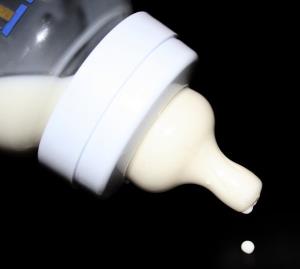
What is BPA?
Bisphenol A, or BPA, is a white powder commonly used in polycarbonate plastic, epoxy resins and PVC since the 1950s. To see whether a plastic product contains BPA, turn it upside down and look for the triangle: if you see a number 7 inside, or the letters PC, you know it contains BPA.
It surprisingly has been found to mimic the female hormone oestrogen, by binding to the oestrogen receptor in the cell in a haphazard, uncoordinated way, disrupting the highly ordered working of the normal hormone oestrogen, especially during pregnancy, and causing various health defects.
Why does BPA concern us?
- Exposure to BPA has been linked to increased breast cancer risk, early puberty, obesity, infertility in males and females, brain dysfunction, thyroid dysfunction, heart disease, diabetes and prostate cancer.
- These effects have been found at BPA concentrations up to 25 times lower than the US Environmental Protection Agency’s (EPA) “safe” dose of 50 micrograms per kilogram (body weight) per day.
- Evidence has been found that BPA acts epigenetically, at low concentrations, to permanently silence critical genes during development in the womb (the consequences aren't yet known).
- Substantial evidence indicates that exposure to BPA during early development may increase breast cancer risk.
- Children may be particularly vulnerable to BPA.
- BPA was detected in the urine of 92% of the US population in 2003-2004 and it is most likely to be in an average South African’s urine as well.
- Global production in 2003 was 2.2 million metric tones in 1999 (This is 2 200 million kg or 328g for every man, women and child on earth per year.)
Where do we get exposed to BPA?
- A hard, clear, near shatterproof plastic called polycarbonate, often used for making baby bottles, sippy cups, dummies and straws. Heating these bottles or exposing it to boiling water releases up to 55 times more BPA.
- Epoxy resin coating in metal food cans, released into the liquid contents.
- Certain bicycle helmets and car safety seats.
- Water coolers.
- Medical devices.
- CD’s, credit cards, cell phones, computers and other household electronics, cars.
- Sports equipment.
- Some drinking water.
- Cash receipts printed with the heat process such as those dispensed by ATM’s. In some cases receipts contained 250 to 1000 times more BPA than is found in baby bottles.
- Small amounts in the air, water and soil across the planet.
How can you reduce the potential risk?
- Buy BPA-free plastic milk bottles. Many brands available locally have introduced BPA-free bottles to their ranges. If you can't find any, ask your local store to order for you.
- Never heat up plastics, and don't put polycarbonate plastic food containers in the microwave.
- Avoiding plastic utensils with a number 7 in a triangle and the letters PC underneath the triangle. This indicates polycarbonate.
- Watch out for the CANSA Smart Choice sticker on baby products.
What is being done?
In Canada, Denmark, Belgium, France and certain US states like New York, Minnesota and Chicago, baby bottles containing BPA are being banned.
In South Africa, CANSA (Cancer Association of South Africa) has started to award its Seal of Recognition to certain baby bottle brands, recognising them as free of BPA and a smart choice.
Don't panic
After all is said and done, there is no consensus in the world about the potential dangers of low dose BPA. The American Chemistry Council believes that BPA is a good product and safe. The FDA has expressed ‘some concern’ but advocates no changes in the status quo at present. Nevertheless, the public and the baby bottle industry are turning away from BPA in order to be safe, rather than sorry.
“We know a women’s lifetime risk of breast cancer is directly linked to her lifetime exposure to estrogen – both natural and synthetic estrogen," says Janet Nudelman, Director, Program and Policy for the Breast Cancer Fund. "It’s outrageous that manufacturers of some baby bottles are exposing little girls to BPA, a synthetic plasticizer that mimics estrogen, and possibly increasing that little girl’s risk of breast cancer later in life, especially when safe alternatives are available.”
For more information, visit www.cansa.org.za, call CANSA toll free on 0800 22 66 22 or email info@cansa.org.za.




 Publications
Publications
 Partners
Partners










